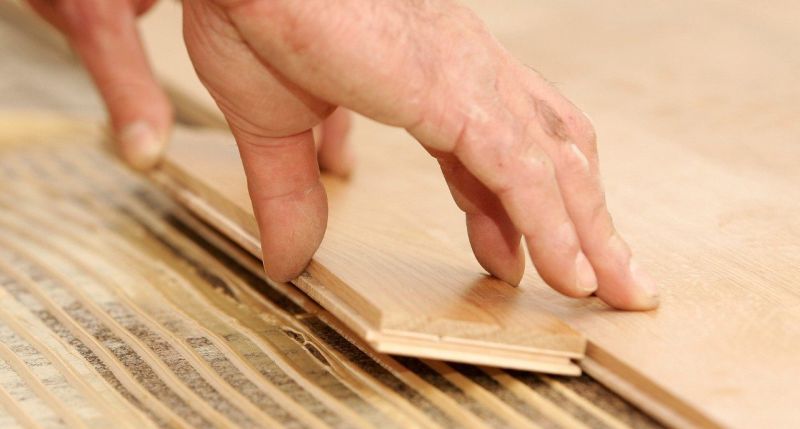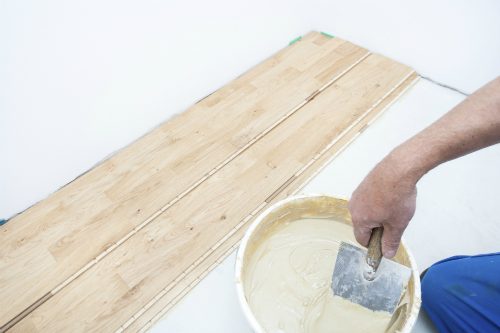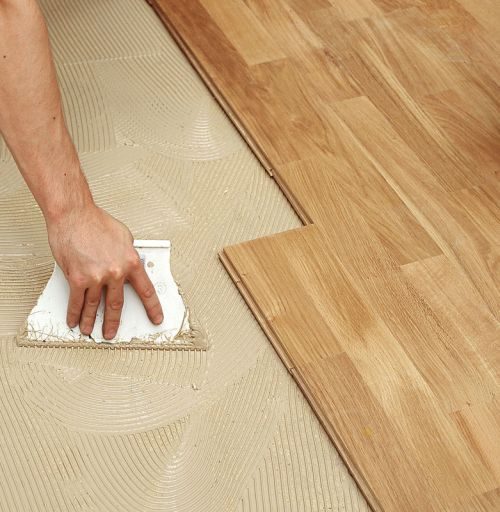
The choice of the right adhesive is a crucial one, as it is one of the factors that will determine great final effect in the long term, ensuring that your flooring is both stable and lasts long. Wood floor adhesives work by creating a bond between the substrate and the floor itself through a chemical reaction. In the course of this reaction, the adhesive changes from liquid to solid state. There are different types of adhesives depending on the carrying agent or catalyst that activates the reactions. In this article we will present you with three major types of wood flooring adhesives. Those include: water-based, solvent-based and urethane-based ones. Read on to learn more about each of them.
Water-based adhesives
Water-based adhesives are considered the most environmentally friendly choice among all adhesives. They do not contain any solvents and are safe to install. But, they are not suitable for every type of installation (their suitability depends on the type of both the floor and the sub-floor).

Solvent-based adhesives
Solvent based adhesives are the second major type of adhesives which unlike the first option described above, can be used with a broad range of installations. However, they do contain solvents, which are non hazardous and evaporate after a few weeks of installation).

Urethane-based adhesives
And the third possibility – urethane based adhesives, also called moisture-cure adhesives. They are most versatile, offering the largest range of applications. Moreover, they guarantee the greatest installation security.
As is the case with most decisions you take, flooring adhesives must be chosen consciously, after weighing down pros and cons of each option, You should choose the very best quality which you can afford. Do not ever look for the cheapest products taking into account only the price factor – by compromising on the quality of your wood flooring adhesive, you can end up with an unsatisfactory end result.
The market abounds with various types of adhesives. There are also a lot of wood flooring adhesive brands offering products which differ in terms of quality and price. In our opinion it’s best to check them for three major features, including strength, durability and compatibility. The first one – strength should ensure a stable bond between the flooring and the subfloor. Durability determines whether the given adhesive will stand the test of time. And the third aspect – compatibility ensures that the adhesive is appropriate for both materials that it should bond.
And finally, remember that it is always best to consult someone who has experience and expertise in this field for helpful advice on which adhesive best suits your project. However, even if you’ve hired professionals to install the floor for you, it is always a good idea to double check that the wood flooring adhesive chosen by them suits the recommendation of your flooring supplier. By doing so, you can be sure that all the right choices have been made for your project.
| Mon-Fri | 8:00AM – 5:00PM |
| Saturday | 10:00AM – 4:00PM |
| Sunday | 11:00AM – 3:00PM |





.svg)
.svg)